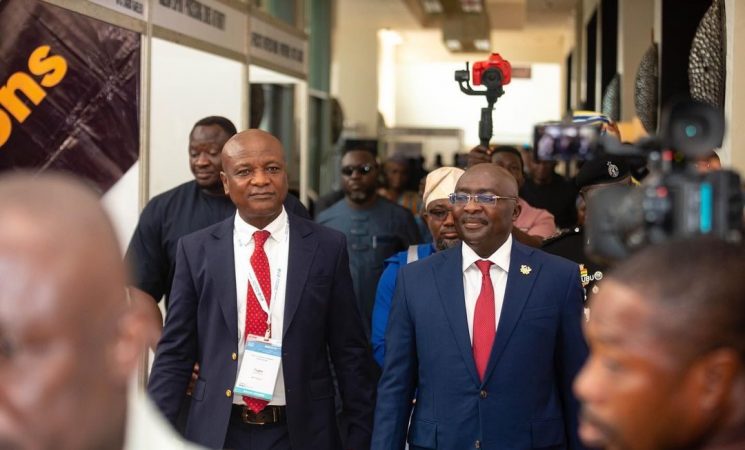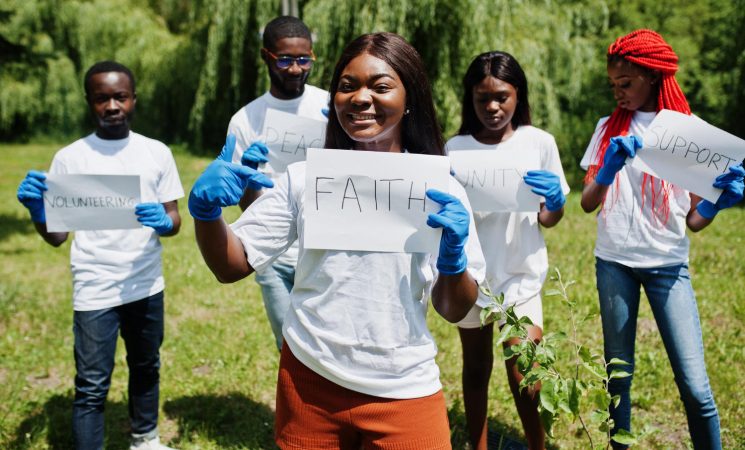Togbe Afede unveiled this noble intent to eminent guests who graced the Asogli Yam Festival in the Volta Region of Ghana, an annual month long commemoration dedicated to retrospection, reconciliation, unity and development; it began on August 6 and ended over the weekend.
The Agbogbomefia intends the ATLI, which would bring together African traditional leaders from across the continent, to refuel the staggering vehicle of a united Africa and vault a dynamic continental unity in aspiration and action. The Agbogbomefia reasons that since customary communal leadership still very much resides in the custody of chiefs and traditional leaders, the ATLI is strategically poised to crusade the dormant drive for Africa’s unity. The Agbogbomefia further reasons that such unity would in turn fertilise the policy of the African Continental Free Trade initiative that has regerminated on the continent in recent years.
“The ATLI, to be based in Accra, Ghana, would add to the AU’s unity initiatives,” Dr Kofi Anani, one of the brain-stormers of the ATLI explains. “Let’s unite and pursue greater things…” the Agbogbomefia invites us, as he courts our support for the ATLI.
This invitation is noble. “But the Agbogbomefia is most likely aware of the justifiable cynicism of some Africans towards the chieftaincy institution generally and the dislike for chiefs particularly. Chiefs are part of our problem with chieftaincy disputes derailing the continent from its orbit of modest progress.”
Chieftaincy conflicts
Disputes over land continue to drive chieftaincy conflicts. “Land forms an essential resource and a continuing incentive for the pursuit of inter-tribal wars in Ghana. Virtually all inter-tribal wars fought in Ghana revolved around land, both as an economic resource and an exemplification of traditional political power,” Professors Ernest Kofi Abotsi and Paolo Galizzi co-write in “Traditional Institutions and Governance in Modern African Democracies.”
Also, chiefs that were once under the control of other chiefs are attempting secession, fueling chieftaincy conflicts.Conflicts also arise in situations where politicians court the support of chiefs. In Ghana, for example, article 276(1) of the Constitution bars chiefs from active partisan politics; but some chiefs relish more in breach of this constitutional fetter than its observance, fueling unnecessary social uneasiness.Because of these conflicts, not a few people have little trust in chiefs. The Agbogbomefia would have to do more to get all hands, including skeptics, on the deck of the ATLI.
Judicial Powers
The ATLI may address the causes of chieftaincy conflicts as well as resolve tensions between the state and chiefs.
Until 1844 in precolonial Gold Coast, chiefs had absolute jurisdiction in both civil and criminal matters. But the Bond of 1844 compelled chiefs to cede their jurisdiction in serious crimes to colonial jurists. Today, in Ghana, as is true of most African states, chiefs are statutorily stripped of this limited criminal jurisdiction they had during the colonial era. Yet, some chiefs exercise criminal judicial powers. Ghana’s Chief Justice, Mr Kwasi Anin-Yeboah, has had occasions to call out chiefs for dabbling in criminal matters in violation of statutory law. Also, some African chiefs occasionally exhibit attitudes bordering on arrogance. Contemporary chiefs should be reminded that they are on the throne because of a mere accident of royal birth, not because of some great feat. Thankfully, many chiefs are humble and humane. The welfare of their people is ever on their minds. These are the chiefs Africa needs.
Resilience
Admittedly, chiefs are no longer the pivot around which the power of the people revolts. Still, even with diminished powers and limited roles, chieftaincy has remained resilient and relevant.
In South Africa, for example, the government allocates US$3.9 million to the king of the Zulus annually because of the power he sways. This resilience is expected. Chieftaincy defines the identity of the African. The Coussey Commission reported: “The whole institution of chieftaincy is so closely bound up with the life of our communities that its disappearance would spell disaster. Criticisms there have been, but none, coming from responsible people whom we have known or met, is directed towards the complete effacement of chiefs.”
British constitutional monarchy, which just began a new day after Queen Elizabeth II’s long and luminous sun came to set on September 8, 2022, evinces the useful co-existence of modern forms of leadership and ancient residues of leadership. African chiefs, surely, are equally up to a lot of good if initiatives such as the Agbogbomefia’s are well thought through and faithfully followed through. The bright sun of the African chief is also capable of shining long and luminously. Togbe Afede: Happy Belated Te Za from a poor commoner!
The writer is a lawyer/doctoral fellow at Fordham Law School, N.Y., USA. E-mail: pbatinge@fordham.edu
“The ATLI, to be based in Accra, Ghana, would add to the AU’s unity initiatives,” Dr Kofi Anani, one of the brain-stormers of the ATLI explains. “Let’s unit and pursue greater things…” the Agbogbomefia invites us, as he courts our support for the ATLI. This invitation is noble. “But the Agbogbomefia is most likely aware of the justifiable cynicism of some Africans towards the chieftaincy institution generally and the dislike for chiefs particularly. Chiefs are part of our problem with chieftaincy disputes derailing the continent from its orbit of modest progress.”
The encounter was not only a nod to the strong historical ties between the U.S. and the UK but also a forward-looking discussion on how these nations can continue to lead by example on the world stage. As the two leaders parted ways, the sense of shared purpose was palpable, signaling a renewed commitment to collaborative efforts that address global issues. This meeting serves as a reminder of the importance of dialogue and partnership in achieving meaningful progress on critical global challenges.



